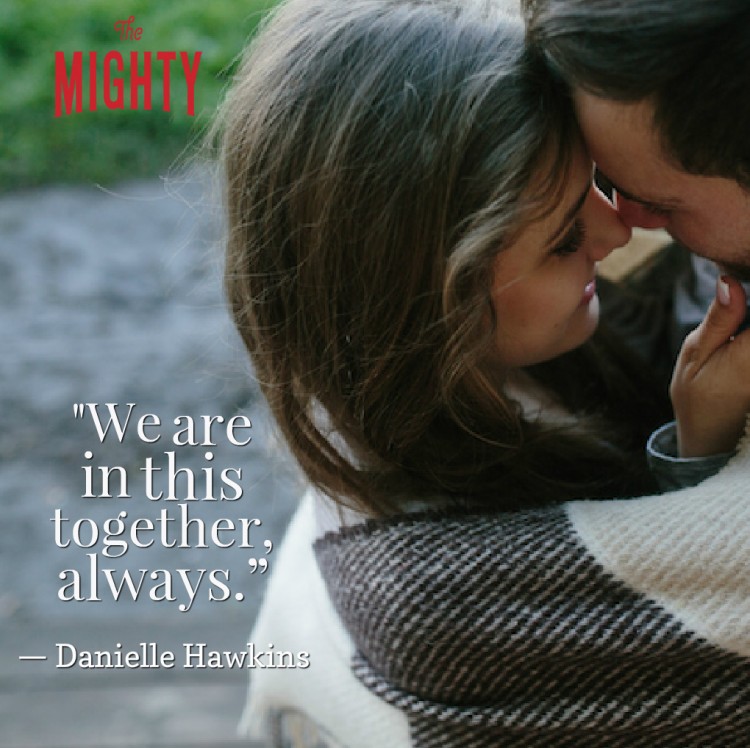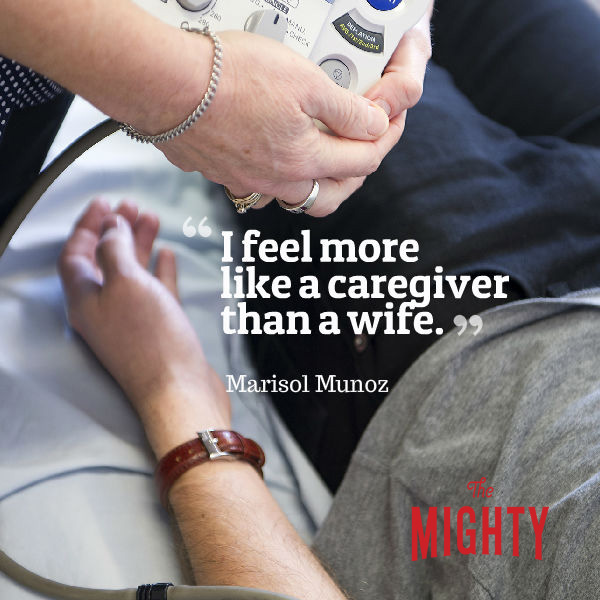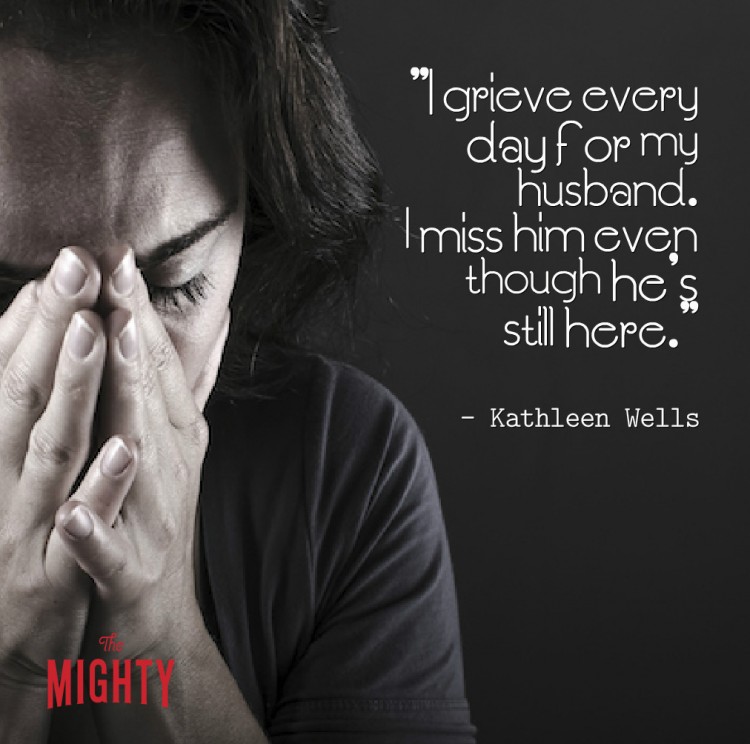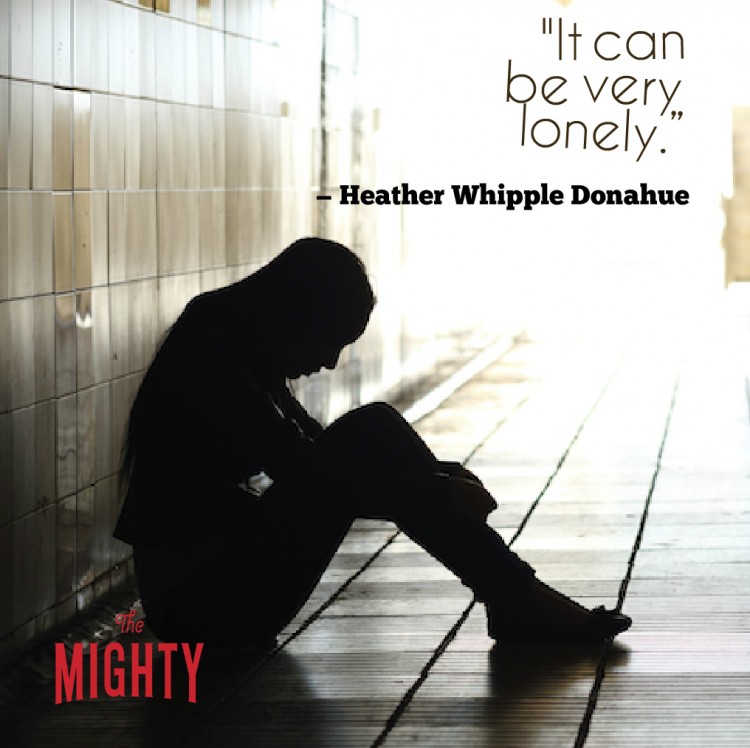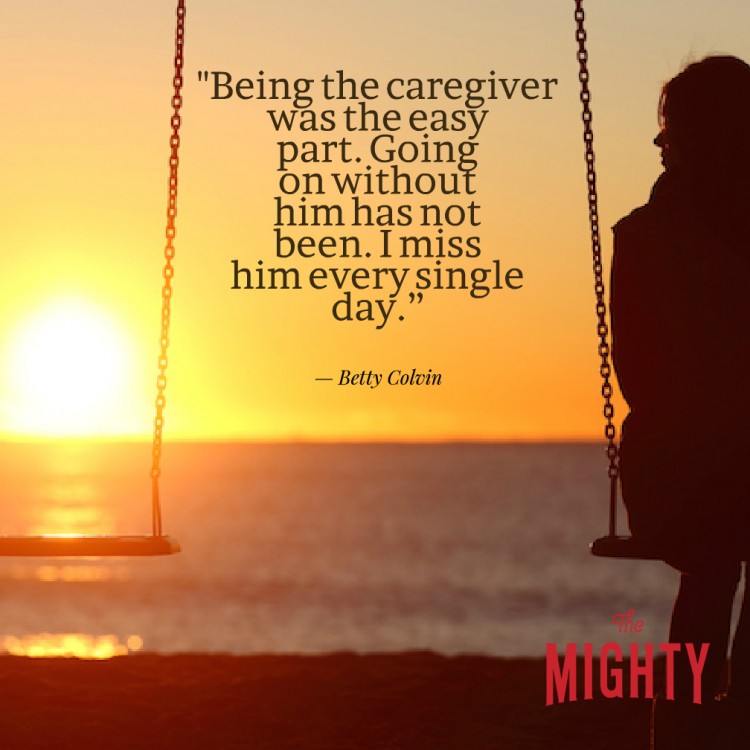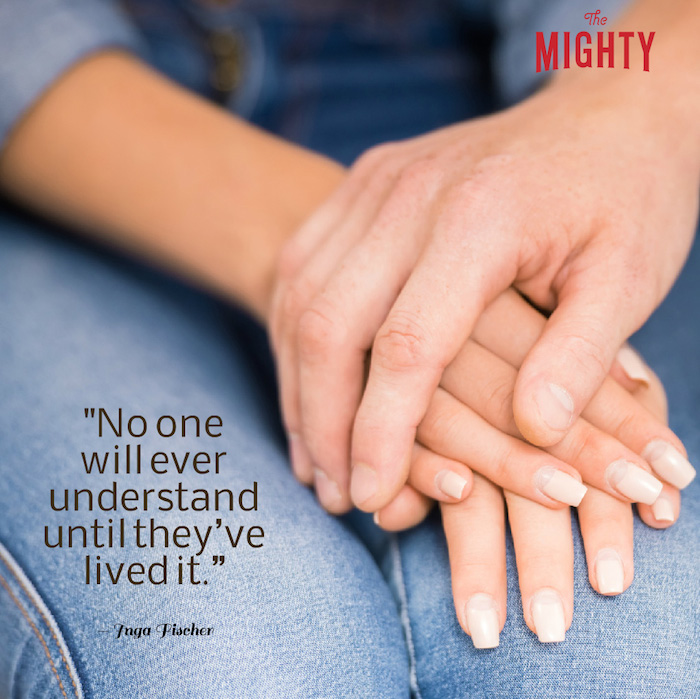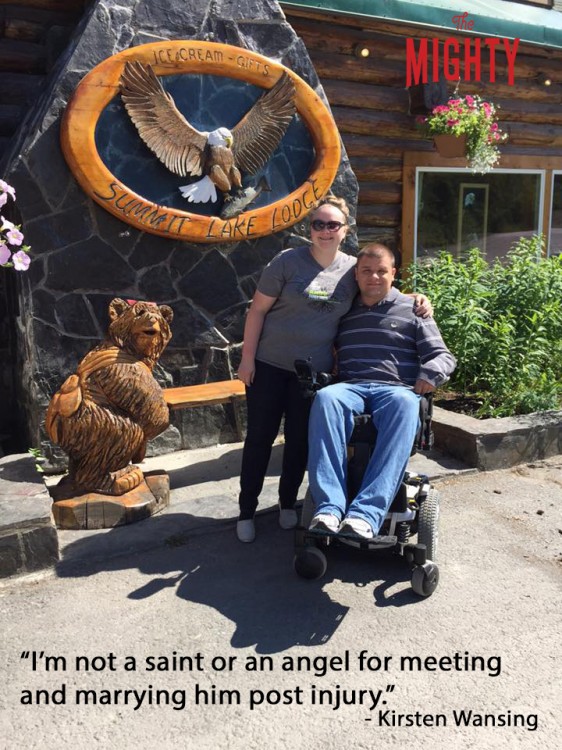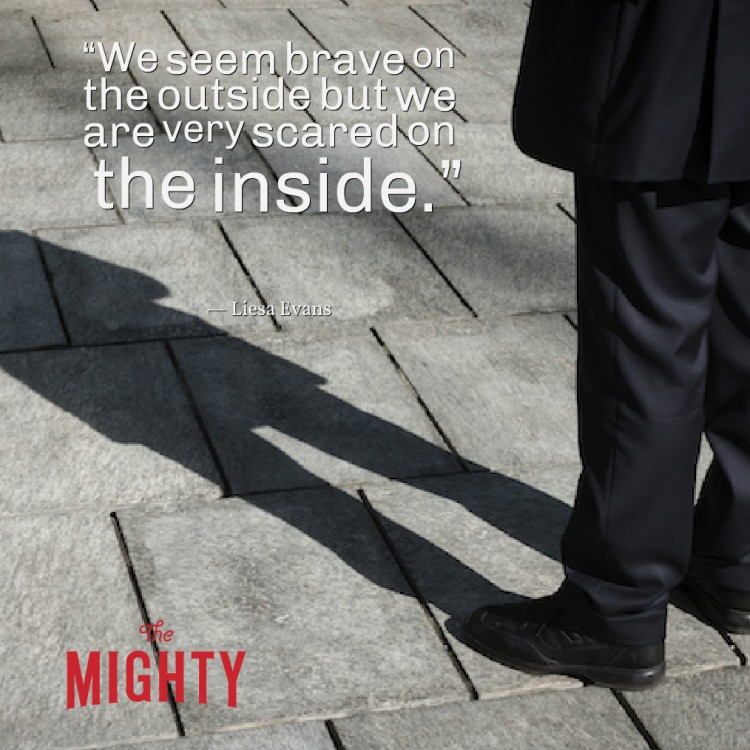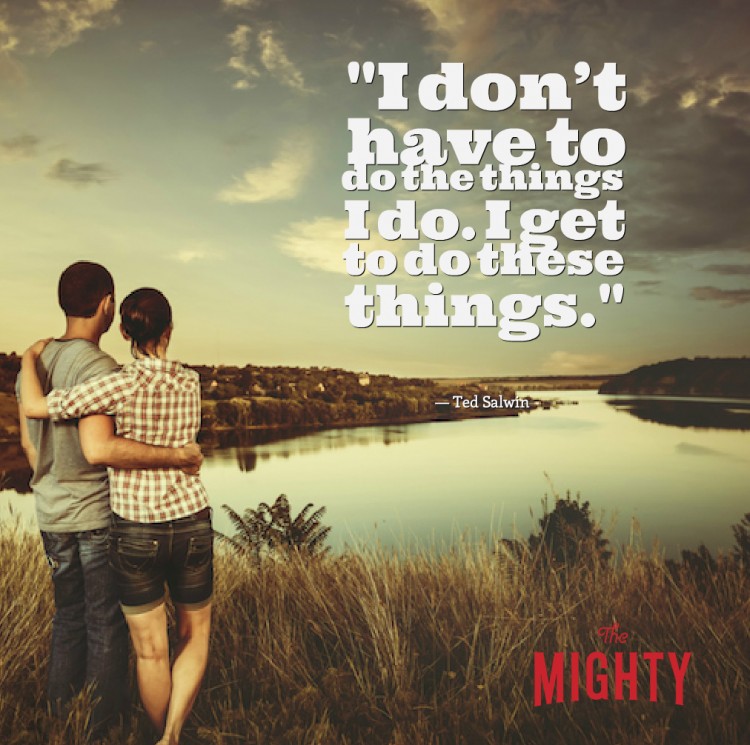Being the caregiver for your spouse is a job that often comes with its own unique set of challenges. Sometimes it feels like a privilege. Sometimes it feels like the most difficult task on the planet. Sometimes it feels like both of these things, all at once.
• The Mighty’s Caregiving Toolkit
The Mighty worked with The Caregiver Space, a nonprofit and community of experienced caregivers, to ask people who’ve been there, or are there, what they wish others could understand about being in this situation. Their answers moved us deeply.
This is what they had to say:
1. “We are a partnership. Even though I am his caregiver. He is still my confidant, my adviser, my best friend and the person I go to with all my troubles. We are in this together, always.” — Danielle Hawkins
2. “Our plans for our future changed. I love him so much (yes, even after being married for 24 years), but it’s different now. I feel more like a caregiver than a wife. All the responsibilities are on me. I learned to be patient, brave and strong. Yes, I do have my days where I wish things were different: I want to feel protected by my husband, I want him to drive me to the movies, I want him to look at me with his hazel eyes the way he used to… many changes, sacrifices and struggles and I do it all for the love I have for him.” — Marisol Munoz
3. “I don’t expend the energy on trying to hope others understand since I don’t think anyone can quite comprehend what it is like unless you live it. I believe that to be true for everything in life. I do believe however that the strength and resilience and ability to go on each day as a caregiver to a spouse is from digging deep and remembering life before it happened, from knowing the person you are caring for is the one who would have done it for you unconditionally.” — Donna Chandler
4. “Every day that I get to wake up with my husband is a gift, no matter how hard it might be.” — Annie Tanner-Couture
5. “He wasn’t a charity case or a burden or a cause for uncomfortable conversation. Even after his disability, he was still my life partner, the father of my children, the avid woodworker who took care of everything around the house and so much more. The single greatest thing anyone could have done for him throughout his disability and hospice was spend time with him like he still mattered.” — Traci Horton Boland
6. “I wish people could understand that even though he’s still here in flesh, he’s really not here, and I grieve every day for my husband. I miss him even though he’s still here.” — Kathleen Wells
7. “I felt I could no longer lean on my husband because he had his cancer to deal with. On the outside I was a rock, but really I was just bottling up all the emotions I would normally share with him. When his chemo treatments were finished, I was in a state of shock. I didn’t realize how bad things had been until the burden was lifted, and then I didn’t know how to process all of those feelings. I want people to know caregivers need emotional support. It can be very lonely.” — Heather Whipple Donahue
8. “When you choose compassion, you can never go wrong, for yourself or your spouse. I have had to write it down to remind myself on the hard days. Compassion.” — Stacy Lee Holm
9. “He’s been gone for eight years now and looking back, being the caregiver (although exhausting mentally, physically and emotionally) was the easy part. Going on without him has not been. I miss him every single day.” — Betty Colvin
10. “It was an honor to be my husband’s caregiver. People told me all the time, ‘You need help, you can’t do this by yourself.’ I loved him so much I didn’t want anyone else to do it because it was an honor. Was it difficult at times? You bet. And during those difficult times we would look at each other and burst into laughter. He was my best friend and I was his and when he couldn’t speak for himself I spoke for him. Bottom line is caregiver is the most difficult thing you will ever experience, but it is the most rewarding as well, and after they are gone you can look at yourself and know you did the right thing and you did it for nothing but love.” — Sandi Dery-Hamburg
11. “We are in this together. Even though I’m my wife’s caregiver, I will always be her wife. No one will ever understand until they’ve lived it.” — Inga Fischer
12. “Everyone asks how my husband is doing, as they should. But I really wish more friends would ask me how I am doing once in awhile. I don’t think people realize how big of an impact my husband’s illnesses have on me.” — Kim Jackewicz
13. “I’m not a saint or an angel for meeting and marrying him post injury.” — Kirsten Wansing
14. “Transitioning from a military spouse to a veteran caregiver, my identity has always been linked to my husband. I think people often forget I am my own person.” — Melissa Comeau
15. “Helping my husband isn’t a burden. His battle is my battle and we do it together.” — Christy Vogel
16. “We seem brave on the outside, but we are very scared on the inside.” — Liesa Evans
17. “It wasn’t an honor for me to be my husband’s caregiver. It sucked. It was the worst pain of my life, feeling powerless to help. And while every day is a gift, it’s hard to see it that way when you are confronted with pain and death. I don’t sugarcoat things” — Jennifer Niemi Raper
18. “I am not saddled with or burdened by the role of caregiver… I don’t have to do the things I do. I get to do these things. Love dictates my choice. I chose to be husband. I choose to be dad.” — Ted Salwin
*Answers have been edited and shortened.

